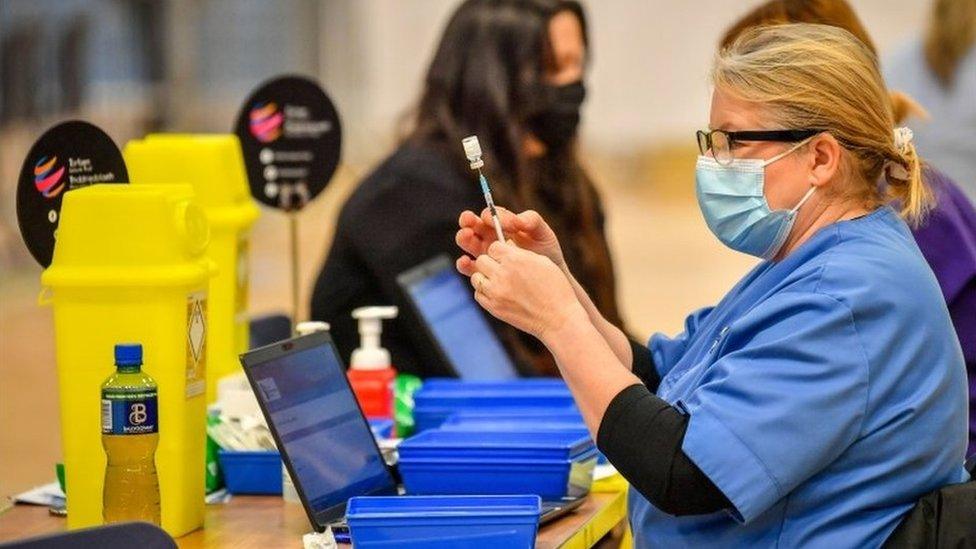Covid: More than three-quarters of Welsh adults have antibodies
- Published
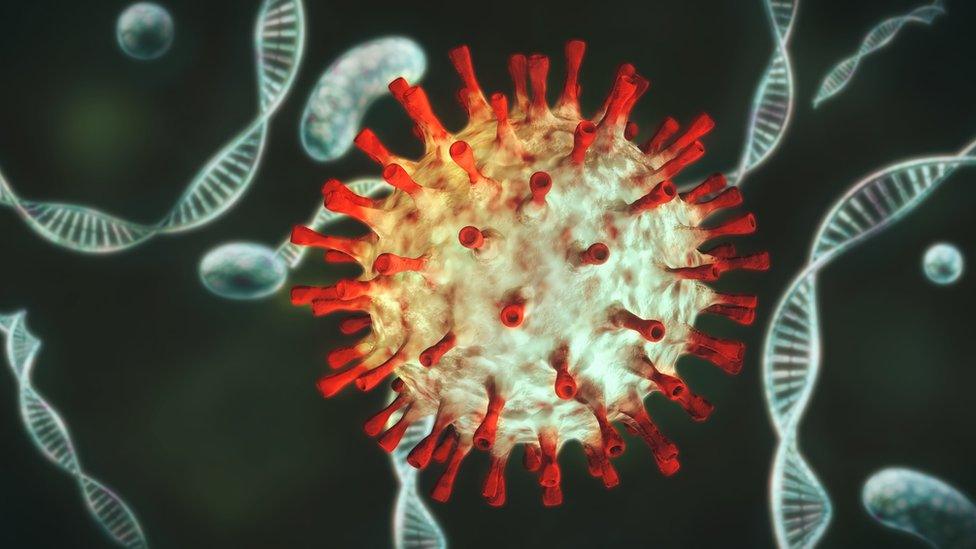
It takes two or three weeks after infection or vaccination for the body to make enough antibodies to fight infection
More than three-quarters of adults in Wales are estimated to have antibodies protecting them against Covid-19.
Data from the Office for National Statistics (ONS), external, shows that an estimated 76.6% of adults in Wales have antibodies present.
This is marginally the highest figure of the four UK nations.
Antibodies are produced in the body after infection or vaccination and can prevent people from getting the same infection again.
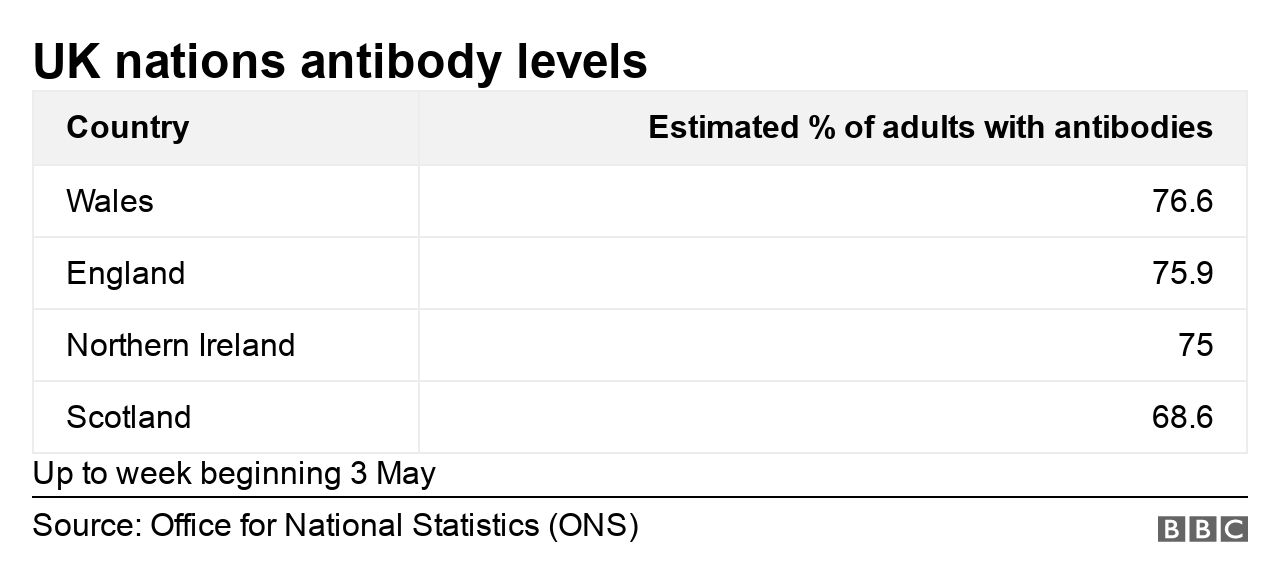
More than 97% of those in the oldest three age groups are thought to have protecting antibodies.
This figure is at least 90% for every single age group over the age of 50.
It is estimated that 69.4% of those aged 35-49 have detectable levels of antibodies.
There has been a sharp increase in antibodies in younger people, as vaccination rates have more than doubled in the 18-29 age group in the past month.
Just under half of 16 to 24-year-olds are estimated to have antibodies, and this is the lowest figure of all age groups.
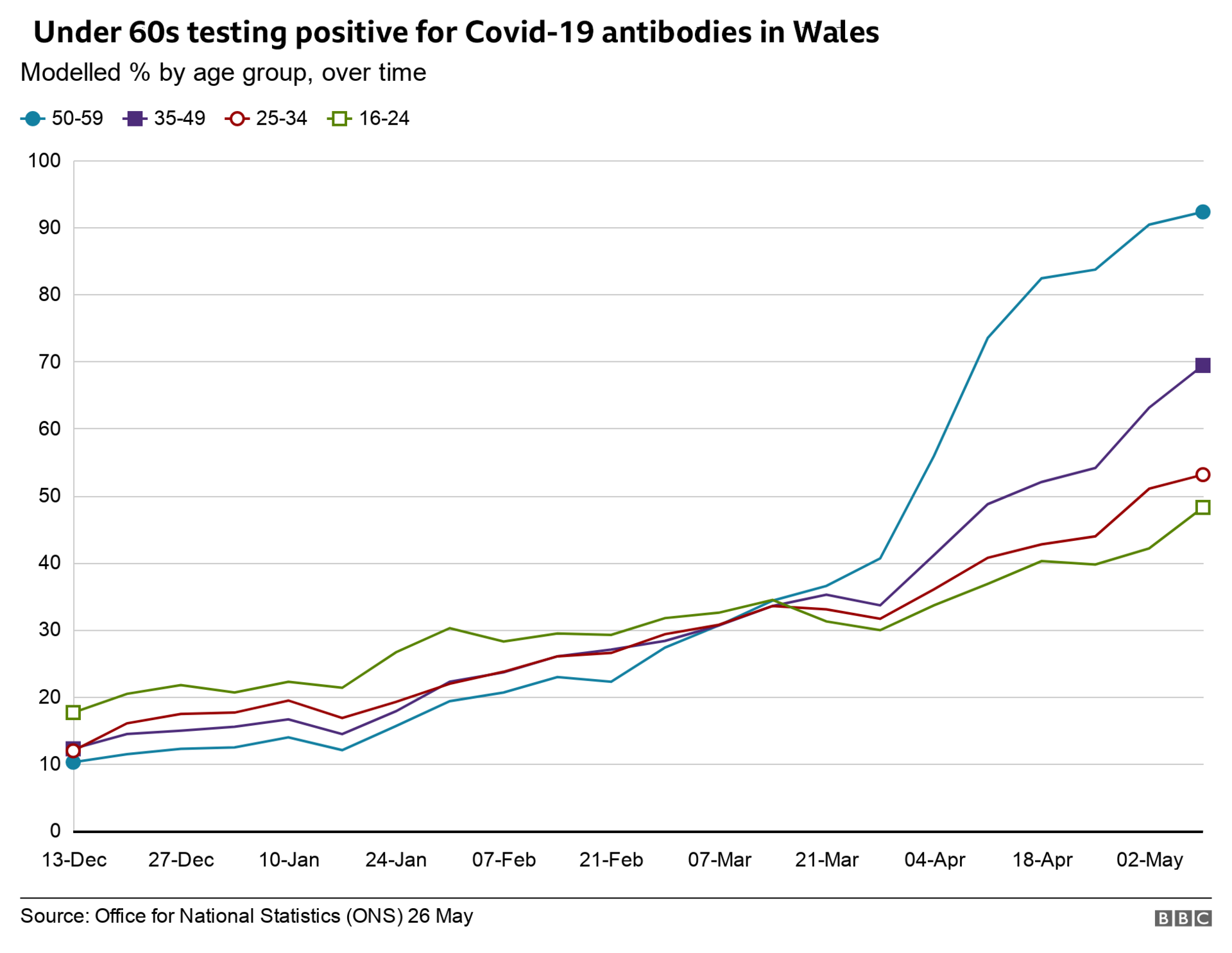
In all age groups, antibody coverage is mirroring vaccine coverage.
Almost 90% of all those aged 65 and over have now had both courses of the vaccine.
There can be a dip in the presence of antibodies between first and second doses, as can be seen in the older age groups.
Antibody levels decline over time, the length of time they remain fully detectable in blood is not fully known.
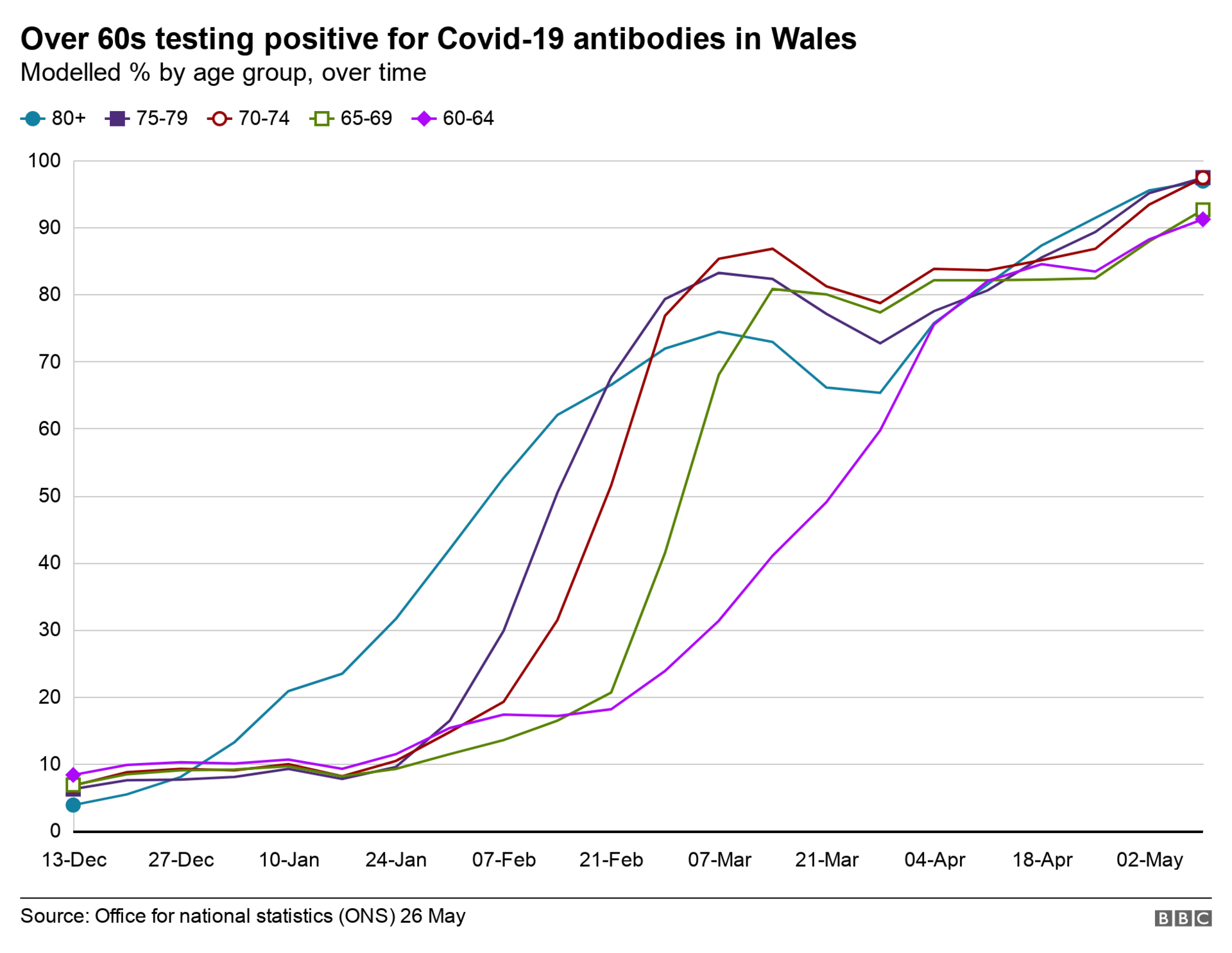
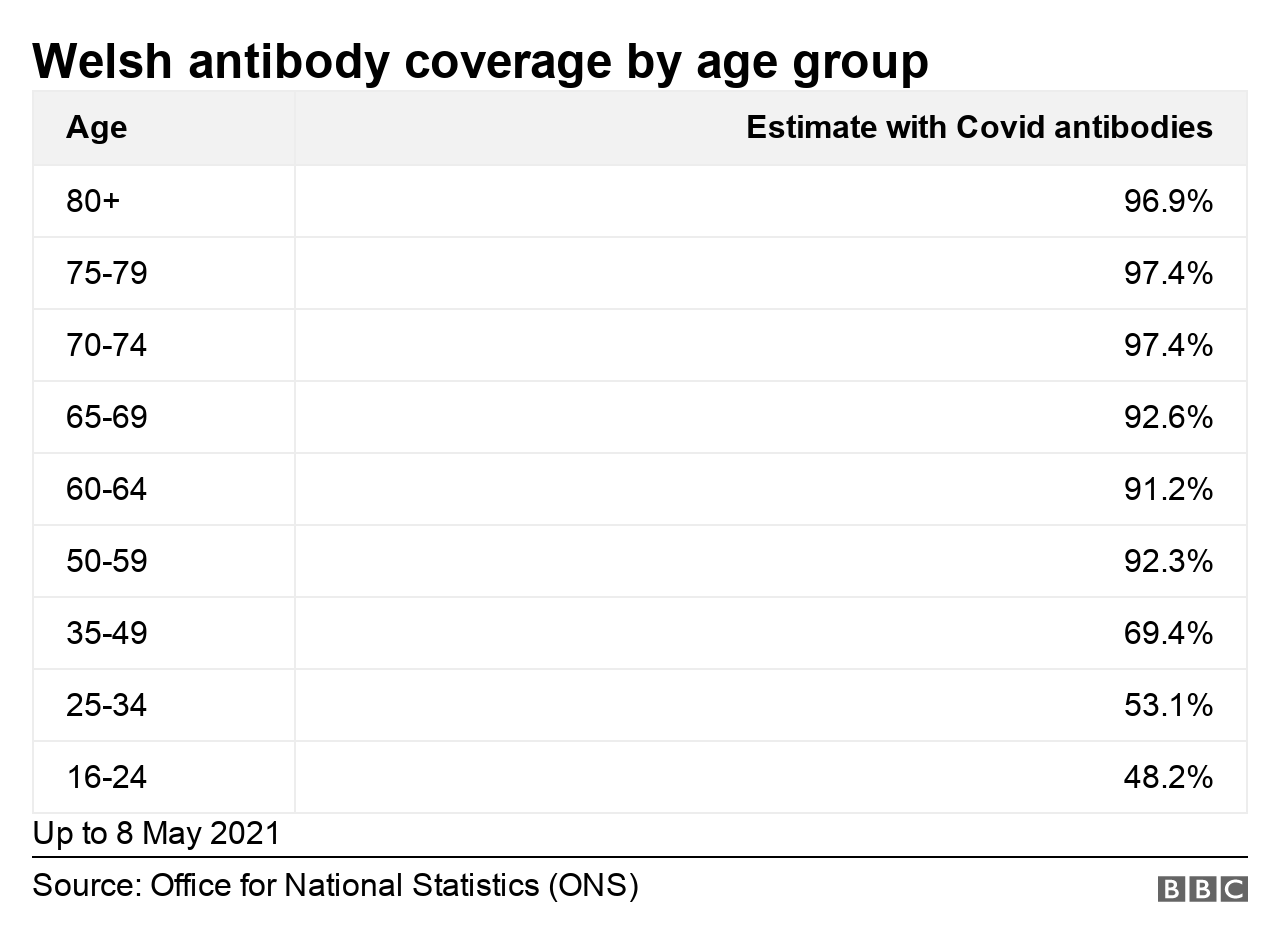
Antibodies are a key part of immune defences and stop the virus from getting inside the body's cells.
It is not yet known how having detectable antibodies affects the chance of getting Covid-19 again, as other parts of the immune system (T cell response) will offer protection.
Official statisticians said across all UK nations, there was a clear pattern between vaccination and testing positive for Covid antibodies "but the detection of antibodies alone is not a precise measure of the immunity protection given by vaccination".
The survey does not include residents of care homes.
Related topics
- Published4 July 2022
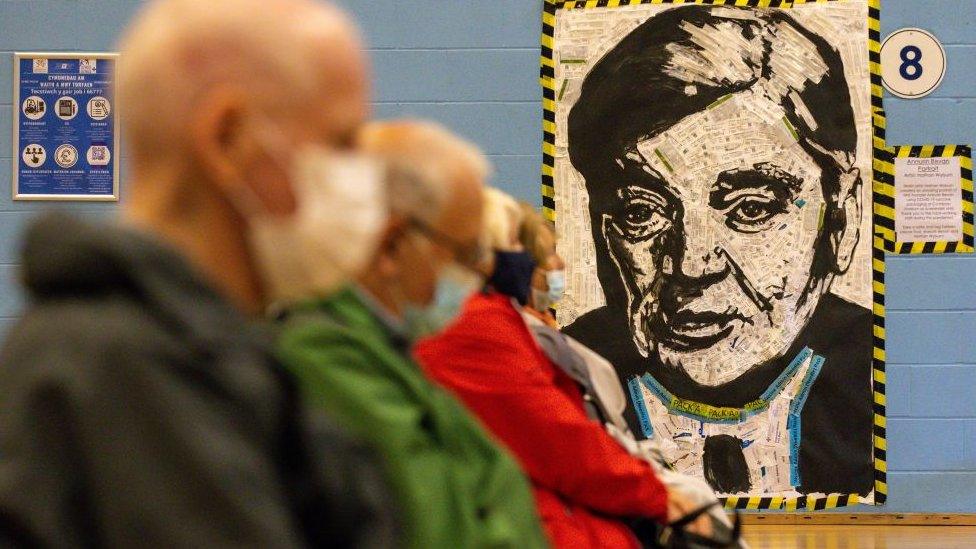
- Published25 May 2021
